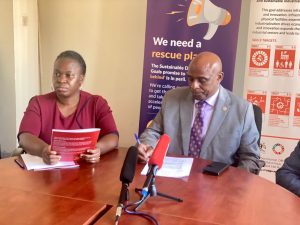People with Disabilities (PWD) have petitioned the government to include them in the National Inclusive Education Policy, which looks at capacity, education, health, and employment opportunities.
According to David Nangosi, the programmes officer for the National Union of Disabled Persons of Uganda (NUDIPU), the majority of PWDs miss out on receiving educational services because there aren’t enough PWD-specific schools and they’re spread out, making it difficult for them to attend.
He pointed out that individuals with epilepsy and visual impairments are still not included in government plans for the education sector.

“I call upon the government to focus more on the overriding theme of leaving no one behind by making sure marginalised groups benefit as well,” Nangosi said.
According to Juliet Ssentongo, an Eyes Officer at Sight Savers, passing the National Inclusive Education Policy will improve the livelihoods of PDWs.
“One of the things I pointed out in the petition was the review of disabilities that are in the health system. You and I will agree that it is quite important in advocacy, but also in planning for persons with disabilities,” Ssentongo said.
She noted that there is still a challenge of data availability for persons with disabilities, which affects service delivery among marginalised groups.
However, the Chairperson of the National Council of Persons with Disabilities in Kampala, Yonna Wasswa, urged PWD to embrace government programmes that aim at poverty alleviation and leaving no one behind.
“I want to call upon persons with disabilities to embrace government programmes so that their livelihood is enhanced,” Wasswa said.
According to the Uganda Bureau of Statistics Census Report, 12.4% of the Ugandan population lives with some form of disability, implying that approximately 4.5 million Ugandans are persons with disabilities, hence a development concern.
